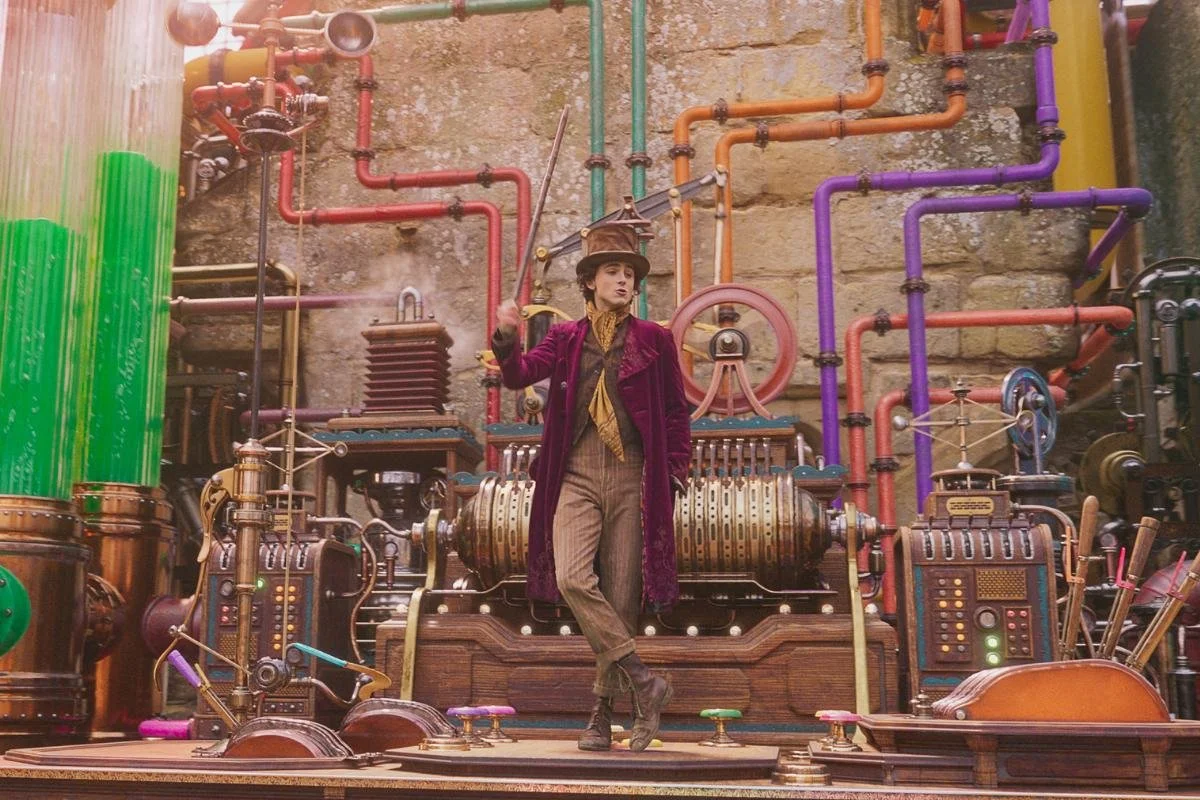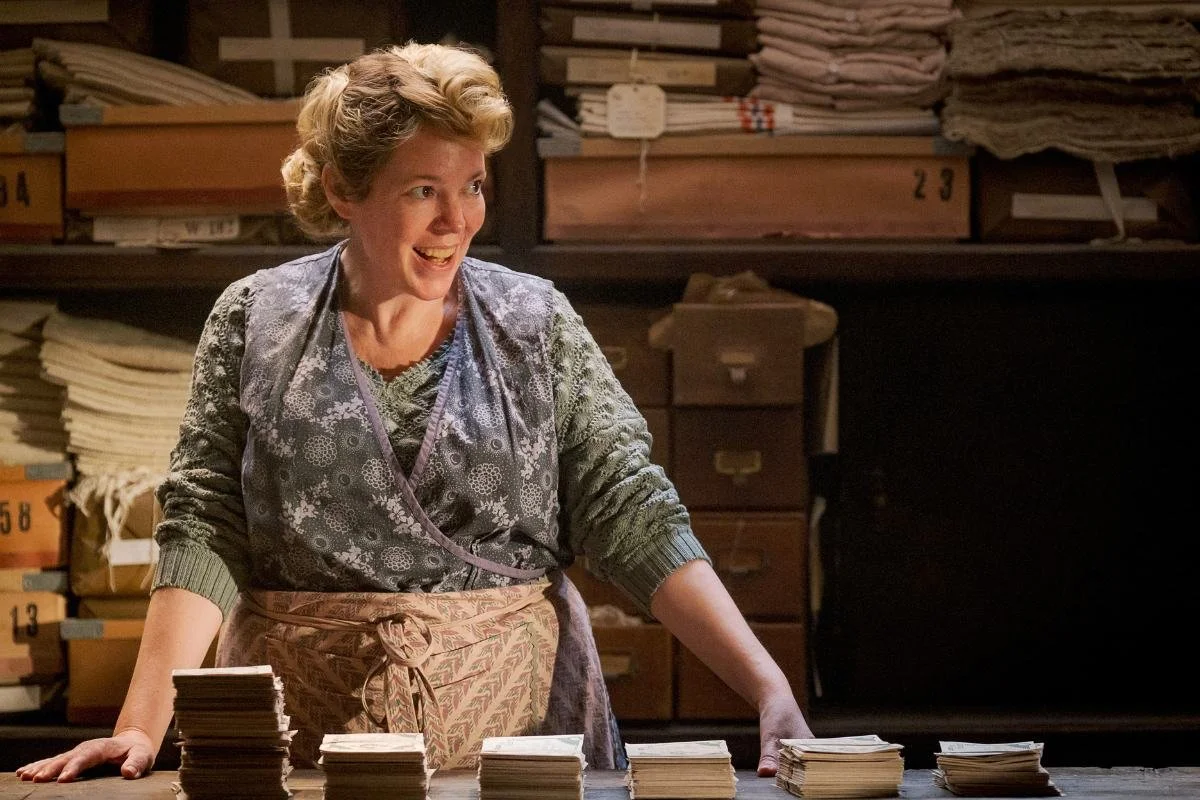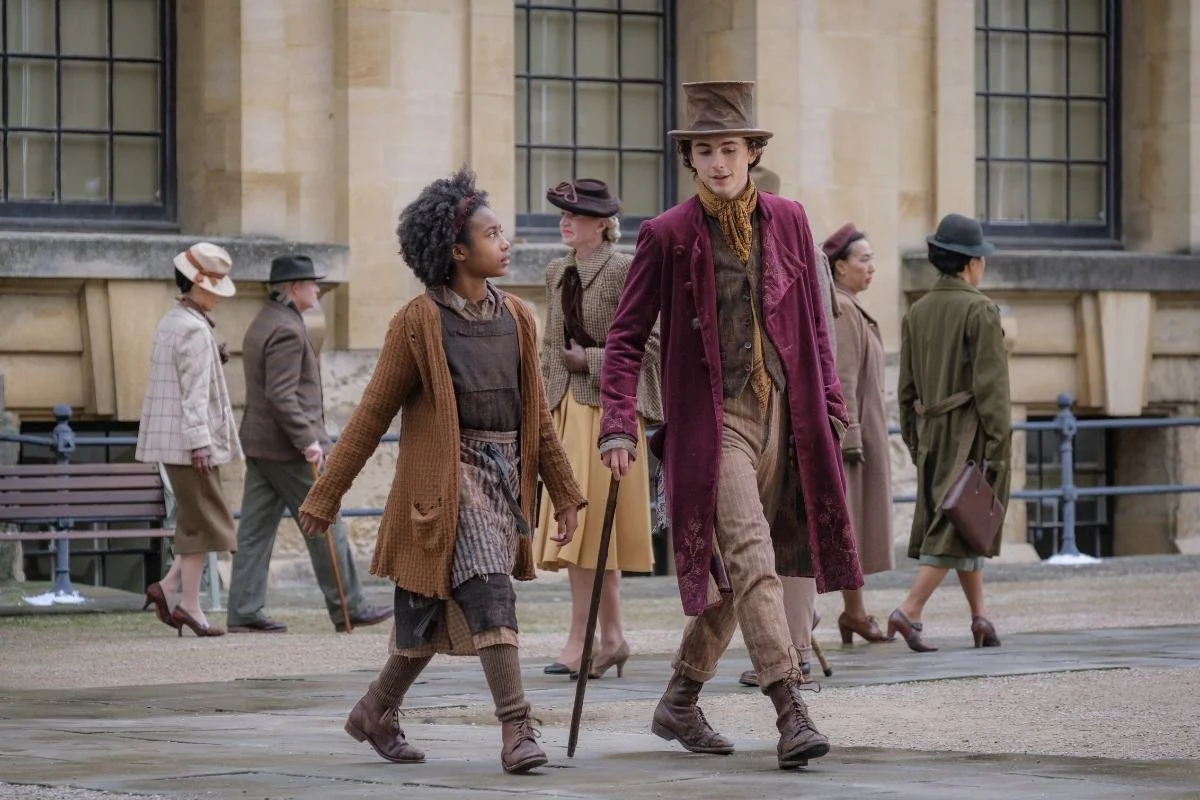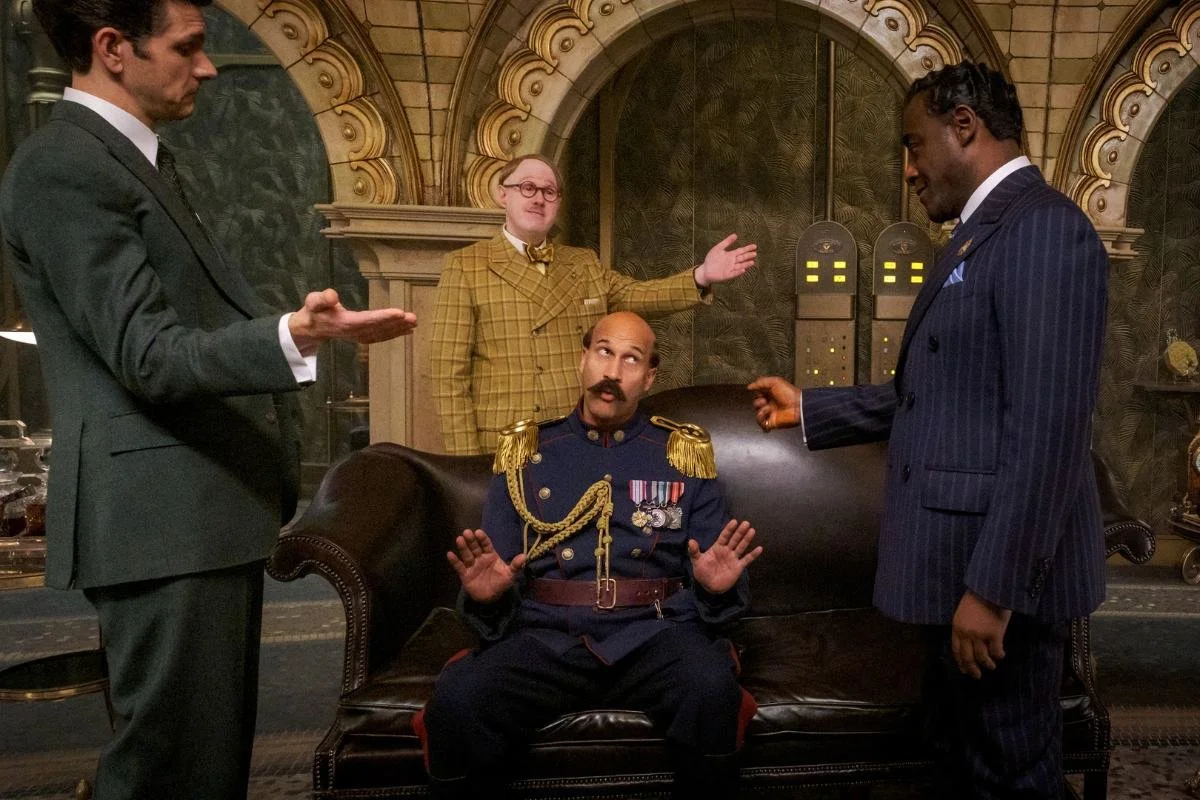Wonka
In his 5-star review of Wonka, The Guardian’s Peter Bradshaw calls Paul King’s musical prequel about the origins of everyone’s favourite candyman “just really nice,” before ranking the film higher than the 1971 Gene Wilder classic. It’s a blasphemy thankfully not repeated in the other reviews I’ve read but there are still plenty that echo the general sentiment. The people have spoken and they like their chocolate sugary, colourful and touched by Timothée Chalamet. Perhaps my impending apathetic take on the film comes down to the fact that I’m more of a savoury girl. But having now seen Wonka, and ingested the puzzling positivity towards it, I’m grappling with the conclusion that either a) I’m a bitter old hag who no longer believes in the good in this world or b) I’m being gaslit by Big Chocolate.
It’s fair to say that Wonka and I started off on the wrong foot and it’s an introduction that pretty much set the tone for the rest of the film. Budding chocolatier Willy Wonka (Chalamet) enters a port in the same fashion as Jack Sparrow, but without the visual gag of a steadily sinking ship and with a middling song on his lips. If I’d forgotten that there are ditties in this universe, it’s because the original film blended them seamlessly (and sparingly) and didn’t have that overproduced quality of 21st century movie musicals. Wonka lacks the courage of having imperfect, human voices in adults and children, I thought, but maybe whimsy and absurdity would make up for it.
Willy Wonka disembarks in the unnamed European (but definitely French) city with a hat full of dreams, a handful of silver sovereigns and a goal to set up his own shop in the Galeries Gourmet, but that damned generosity of his quickly whittles his bank balance down to zero. After giving his last coin to a rough-sleeping single mum, he’s approached by a man named Bleacher (Tom Davis) who knows a place he can stay for the night. Putting all his trust into this orthodontically challenged gentleman and his computer generated dog, Wonka is escorted to a dodgy laundromat/hotel run by Mrs. Scrubbit (Olivia Colman). In a nod to the original film, he signs a comically long contract for his stay despite warnings from an orphan worker named Noodle (Calah Lane) to read the fine print. It seems he’s gone and got himself loopholed into a life of servitude. But it’s okay, because all you need to succeed in this world is a dream, an inventory of cocoa beans and a helping hand from an improperly scaled Hugh Grant.
I wanted - and expected - to enjoy Wonka. But there’s a curious emotional hollowness to it when compared to King’s gorgeous Paddington films. Where those are teeming with uniquely British wit and tug at the heart strings without the need for manipulation, Wonka doesn’t achieve the same success. Musical cues swell in moments that are supposed to inspire something in the audience and I watched on, sucking on my hard candy, unmoved. I found the songs too frequent and apart from the early number ‘Scrub Scrub’, have entirely forgotten any of the other original melodies. The experience has instilled in me a much stronger admiration for the absolute miracle that an ear wormy movie musical number actually is. Hats off to The Greatest Showman for somehow creating an album full of bangers.
What Wonka does well, though, is make excellent use of its supporting cast. The few moments that the film managed to wrangle more than a polite chuckle from me almost always involved characters quite far down the playbill. Simon Farnaby (who also co-wrote the screenplay) steals his short scenes as Basil the lovelorn zoo guard, as does the object of his yearning, Gwennie (Ellie White). Colman and Davis are fabulous as the dastardly Scrubbit and Bleacher, and the whole downstairs crew (particularly Jim Carter and Natasha Rothwell) chew up their scenes. Paterson Joseph is brilliant as Slugworth, especially in the absolutely bonkers (and may I say, homoerotic) number performed by the Chocolate Cartel. And it’s a joy, as ever, to see Rowan Atkinson making fun of priests by colouring them corrupt.
And what of young Timmy? His Wonka is certainly better than Johnny Depp’s Michael Jackson coded version, but as my brain has done me the courtesy of repressing all memory of Tim Burton’s Charlie and the Chocolate Factory, that doesn’t mean much. My dictionary definition of Willy Wonka will always have a gif of Gene Wilder manically scoring a technicolour nightmare as children scream on an Oompa Loompa-powered boat. While Chalamet can repeat lines made famous by his 70s predecessor, it is simply a watered down impression, strained of the sardonic charm and everything else that makes Wilder’s Wonka someone worth studying.
So if there’s no edge, few genuine laughs and a lead who is just okay, is there any point to seeing Wonka? Is a film that’s “just really nice” worth the praise it’s getting?
The answer will differ, depending on your fancy. It’s very likely that children and families will adore this film, and there’s a lot in there for them to love. It’s hopeful, earnest, quite beautiful to look at and features far fewer hard lessons for kids than the 1970s deemed necessary or entertaining. I wholeheartedly acknowledge that that might indeed be the target audience, rather than embittered 30-somethings who prefer a little sarcasm and the threat of going back to a life of poverty because Grandpa Joe couldn’t keep his curiosity in check. If you fall into the former demographic, you’ll probably find Wonka delicious. If not, pick up a block of 85% cocoa dark chocolate, pour yourself a good, stiff drink and revisit the OG instead.
Wonka is in cinemas December 14.
(Willy Wonka & the Chocolate Factory is on Stan, Paramount+ and in our Blu-ray collection, if you’d like to borrow it.)




